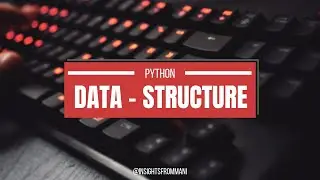How are academic journals ranked? Impact factors EXPLAINED
What is an impact factor? Why do academic journals use impact factors? How to calculate an impact factor? What are the problems with impact factors? How are journals ranked? What are the best academic journals? What are journal impact factors?
=====CHAPTERS=====
0:00 Introduction to academic journal impact factors
0:18 How to calculate an impact factor?
1:42 Impact factors across different fields of research
2:33 The problems with impact factors
3:49 Life science impact factor example
4:26 Mathematics impact factor example
=====SCRIPT OF VIDEO=====
What is an impact factor?
Academic journals are ranked according to a metric called the Impact Factor. This metric is a measure of the annual citations for that journal versus the number of papers in the journal.
Throughout academia, journals adopt the Impact Factor as a way of ranking the ’importance’ of a journal and thus, the research it publishes. Higher impact factor journals are considered more important than journals with a lower impact factor.
How is the impact factor of a journal calculated?
Specifically, for any given year, by the number of citations a journal received for the preceding two years is divided by the number of published papers for those two preceding years. Therefore, the more citations a journal receives relative to the number of papers it publishes, the higher the Impact Factor.
Within science, for example, the journals Nature and Science have the highest Impact Factors of 38.138 and 34.661, respectively, for 2015.
Impact factors cannot be compared across different fields of research
Impact factors are exclusive to the field of research. That is, Impact Factors of ecology journals are on a separate scale from the impact factors for say mechanical engineering journals.
However, impact factors within a field of research are comparable across sub-fields and complementary fields due to the scope of work a journal publishes.
For example, research on spatial ecosystem modeling and modeling isotope pathways in freshwater food webs could theoretically be published in a similar journal and thus share the same Impact Factor.
Impact factor is practical but not perfect
The Impact Factor remains a controversial issue due to its subjective nature. However, it currently offers a practical means of maintaining the high quality and integrity of academic publishing: authors are incentivised to publish in high Impact Factor journals because these journals have stringent acceptance policies and thus present a valuable resource sink, that is both highly read and cited by academics and non-academics alike. Alternative ways of ranking journals are becoming more common, such as the methods used by CiteScore.
Additionally, some predatory companies create false impact factors in order to legitimize their journal. These false impact factors are produced by companies not affiliated with Journal Citation Reports. In order to validate the legitimacy of an impact factor, consult the Journal Citation Reports’ master journal list.
Practical example for Life Sciences
Within the life sciences, publishing companies of academic journals list up-to-date information of available journals according to sub-discipline on their websites, e.g. Springer (http://www.springer.com/gp/impact-fac...) and Elsevier (https://www.elsevier.com/physical-sci.... Within each sub-discipline, authors can follow links to individual journal home pages, where they can browse for information on journal scope, the editorial board, and instructions for authors.
Practical example for mathematics
One way of measuring impact is the ‘mathematics citation quotient’ of a journal. You can use the search engine http://www.ams.org/mathscinet/citatio... (look at Journal Citations) to check the citation factor of a specific journal. Note that this engine requires a subscription, which you might be able to access through your university. Some journals may also list their result on their website.
=====PLAYLISTS=====
Getting started with submitting your research paper to a journal https://bit.ly/3FSOP4S
Target the right journal for your paper https://bit.ly/3sTyvNC
Prepare your research paper for submission to a journal https://bit.ly/3G2N3OA
=====UNI-EDIT SERVICES FOR AUTHORS=====
University English Editing & Translation service: https://uni-edit.net
Uni-edit specializes in language services for academics and researchers.
PUB002



















